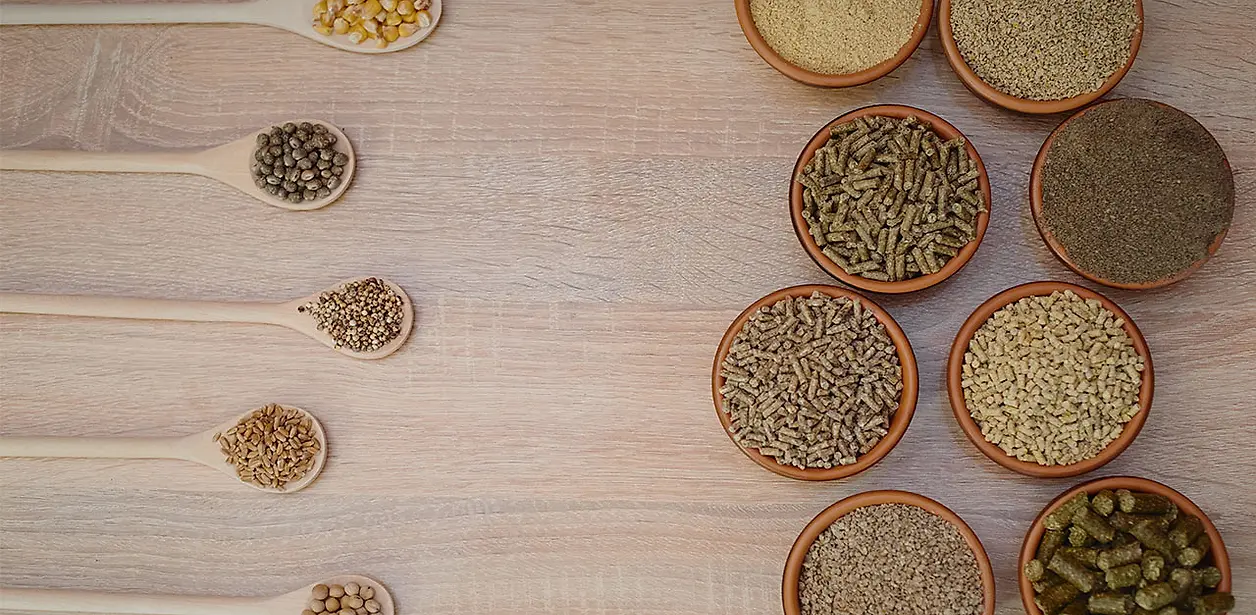ISO 175365 Crude Fat Testing in Cereal-Based Rations
Crude fat testing is a critical component of feed quality management and compliance within the food & feed sector. ISO 175365 specifies methods for determining crude fat content in animal feed, particularly focusing on cereal-based rations. This method ensures that manufacturers and suppliers meet nutritional requirements and regulatory standards, thereby safeguarding both animal health and consumer confidence.
The testing procedure outlined in ISO 175365 involves the extraction of lipid components from a sample using an organic solvent such as petroleum ether or hexane. The extracted fat is then dried to constant weight under controlled conditions. This method provides a standardized approach that ensures consistency across different laboratories and regions.
The importance of crude fat testing cannot be overstated, especially in cereal-based rations which are staples in animal feed formulations. Cereals like corn, wheat, and barley provide essential energy sources for animals but must contain an appropriate level of fat to support growth and health. Excess or insufficient levels can lead to nutritional imbalances that affect the performance and well-being of livestock.
The testing process begins with precise sample preparation. Samples are typically taken from a representative batch of feed, ensuring homogeneity across the entire lot. This step is crucial as it directly impacts the accuracy of the final results. Once prepared, samples undergo extraction using organic solvents under specific temperature and time parameters to ensure complete fat removal without affecting other components.
Following extraction, the solvent containing the extracted fats is removed via evaporation or distillation. The residue obtained after this step represents the crude fat content in the feed sample. This residue is then dried until constant weight is achieved, indicating that no further moisture remains. The final weight of the dry residue provides a direct measure of the crude fat percentage.
Accuracy and precision are paramount in ISO 175365 testing. Laboratories must adhere strictly to prescribed methodologies and use calibrated equipment to ensure reliable results. Regular calibration and verification of instruments, along with strict adherence to standard operating procedures (SOPs), help maintain quality control throughout the testing process.
The significance of crude fat content in cereal-based rations cannot be overlooked. It plays a vital role in determining feed efficiency, palatability, and overall nutritional value. A precise understanding of this parameter allows for better formulation of diets that meet specific animal needs while adhering to international standards such as ISO 175365.
Understanding the intricacies of crude fat testing through ISO 175365 enables stakeholders in the food & feed sector to make informed decisions. This knowledge supports compliance with regulatory requirements and contributes significantly to maintaining high standards of animal nutrition and welfare.
At Eurolab, we pride ourselves on delivering world-class laboratory services that meet the highest international standards. Our expertise in ISO 175365 crude fat testing for cereal-based rations is just one example of our commitment to excellence.
- Precision and Accuracy: Utilizing state-of-the-art equipment and methodologies, Eurolab ensures precise and accurate results every time.
- Compliance Assurance: Our services are designed to help clients meet stringent regulatory requirements across various jurisdictions.
- Expertise and Experience: With a team of highly qualified professionals, Eurolab offers comprehensive support for all your testing needs.
- Timely Deliveries: We understand the importance of timely results in the dynamic world of food & feed manufacturing. Eurolab guarantees prompt delivery of reports to help you stay ahead of the competition.
In addition to these advantages, Eurolab maintains strict quality control measures and is fully accredited by recognized bodies ensuring reliability and trustworthiness of our services.
International Acceptance and Recognition
The international acceptance and recognition of ISO 175365 crude fat testing are key factors in its widespread use within the food & feed sector. This standard is accepted globally due to its rigorous methodology and consistent results across different laboratories.
Regulatory bodies worldwide have adopted ISO 175365 as a benchmark for ensuring the quality of animal feeds, especially those based on cereals like corn and wheat. Its acceptance in countries such as the United States, Canada, Europe, and Australia underscores its reliability and relevance.
The use of this standard ensures that feed manufacturers can confidently provide products that meet not only local but also international standards. This recognition fosters trust among buyers and sellers, enhancing market access for cereal-based rations.
Moreover, the acceptance of ISO 175365 in various regions highlights its applicability to diverse climates and agricultural practices. Whether it's a large-scale feed mill in North America or a smallholder operation in Africa, this standard provides a level playing field for quality assurance.
In conclusion, the international recognition of ISO 175365 ensures that cereal-based rations are consistently tested and evaluated using the same stringent criteria. This consistency is crucial for maintaining high standards of nutrition and health across different markets and industries.
Use Cases and Application Examples
- Quality Assurance: Ensuring that cereal-based rations meet specified fat content levels to maintain product quality.
- Compliance Verification: Confirming adherence to regulatory requirements for feed safety and efficacy.
- Research & Development: Supporting the development of new formulations by providing accurate baseline data on existing products.
- Supply Chain Management: Verifying the consistency of fat content in large-scale production runs or batch imports.
- Purchase Verification: Providing independent confirmation that purchased feeds meet expected specifications before incorporation into larger rations.
- Sales & Marketing: Demonstrating compliance with international standards to potential buyers and stakeholders.
The versatility of ISO 175365 crude fat testing is evident in its various applications. From small-scale farms to large corporate entities, this standard plays a crucial role in ensuring the integrity and reliability of cereal-based rations.





